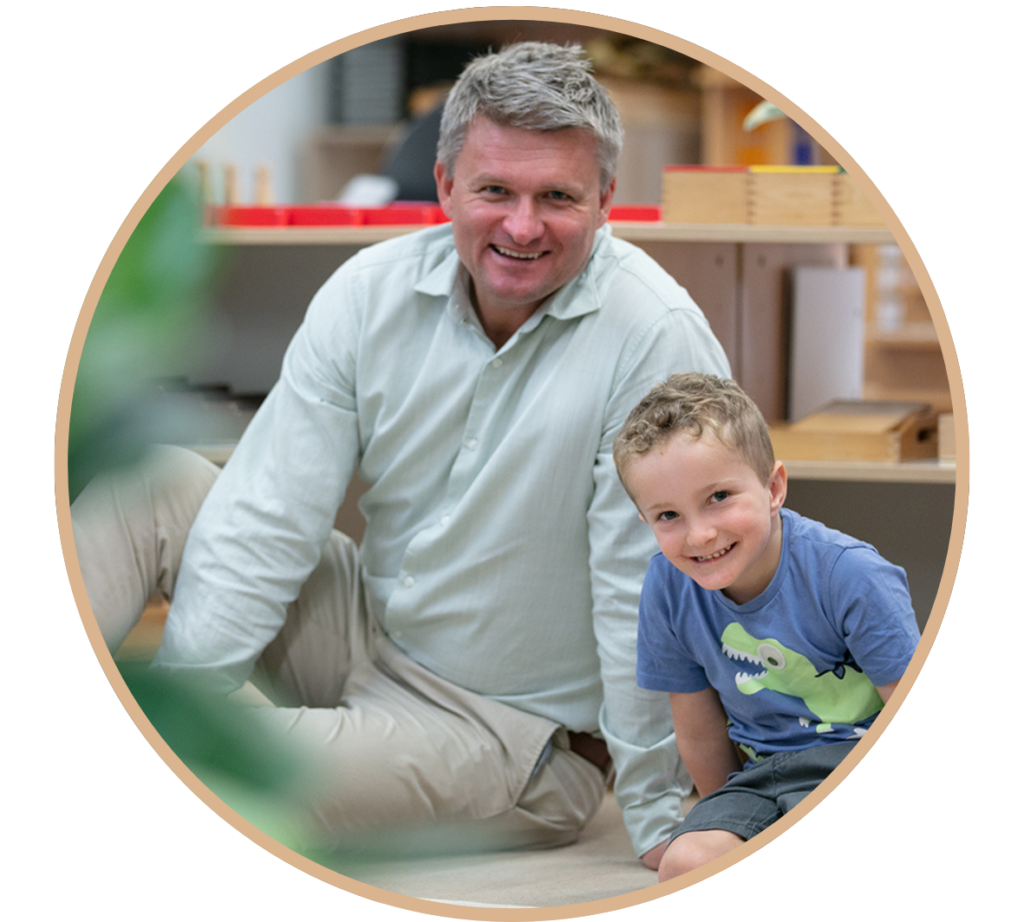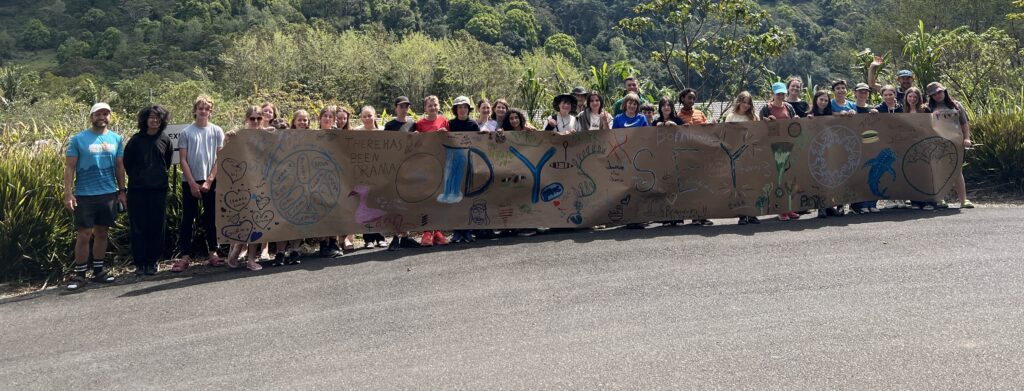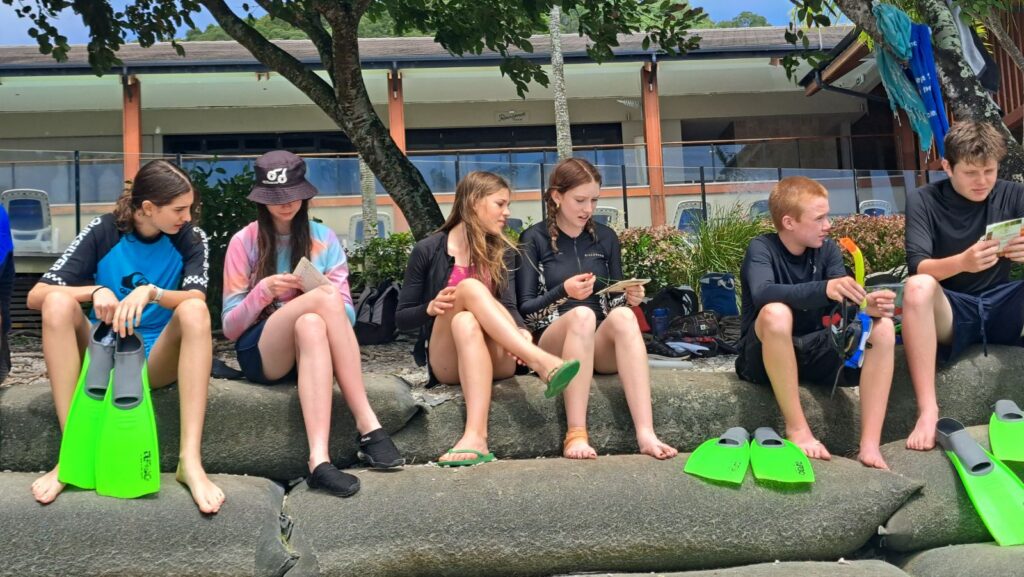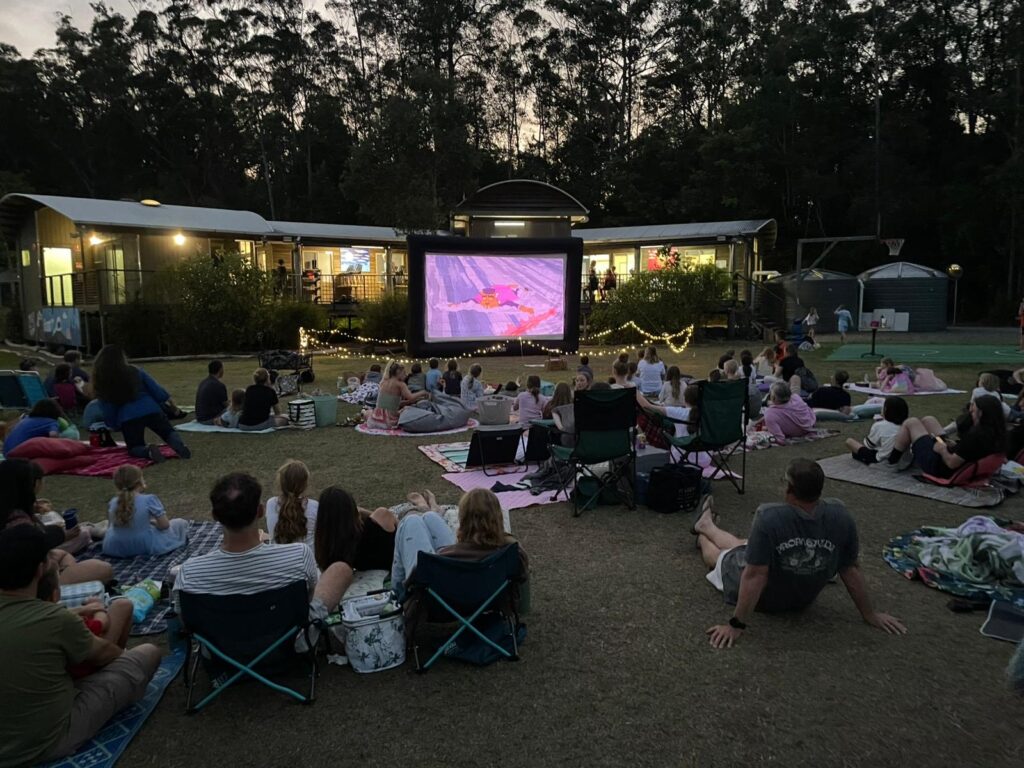27 October 2025
Contents


Dear MIC Families,
Can you believe it is Week 4 of Term 4 already?! With many events happening over the next six weeks, it is going to be an incredibly fast-paced end to 2025.
In Montessori education, and particularly in primary (6-12 years) and secondary (12-18 years) ages, experiences outside the four walls of the classroom are considered very important in order to meet the needs and characteristics and overall development of the child/adolescent.
This characteristic of development, where students want to explore, manifests in the second plane of development (6-12 years) and after the age of six, as children start separating from their biological family (before six, the child is adapting to the family unit, but they now want to look outwards and at the rest of the world).
During this time, there is a greater need for independence and physical exploration. We foster this need by allowing indoor-outdoor flow of work; camp and tour experiences (Junior Primary camp, Senior Primary camp, Canberra Civics and Citizenship camp, Montessori Model United Nations program and tour); and Going Out opportunities.
With regard to Going Out, children from around six years of age are making friends, and as they go out more they see greater examples and get a greater understanding of the social environment — and real-world, real-life interactions. Going Out as MIC students supports this development. We are currently updating our Going Out Policy and are pleased to be able to offer more of these opportunities for our students in 2026. You can find more about the concept of Going Out here.
While Going Out is a second plane concept, in the third plane of development (12-18 years), Montessori’s vision for adolescents and their development and work centred around social organisation.
In sociology, social organisation refers to the network of relationships in a group and how they interconnect. This network of relationships helps members of a group stay connected to one another in order to maintain a sense of community within a group.
“Social Organisation” is spoken of in Montessori primarily at the adolescent level, since it is a central component of the work of that level; it is the thread that ties many other principles together.
At MIC, there are many activities/work that we coordinate and facilitate so that social organisation is lived/experienced for our students and within our program. Examples of these are through our Microeconomy program, and the 8 businesses run by MIC students; Odyssey, adventure and service camp experiences; service partnerships with the Homeless Shack shelter and age care homes; and student-coordinated events hosted at the college.
As we look ahead to the final weeks of Term 4, it’s heartening to reflect on how these authentic, purposeful experiences, whether through Going Out, camps, service, or student-led initiatives, are deeply rooted in the developmental needs of our children and adolescents. They are not just learning about the world, but learning in it, with it, and for it.
Finally, I want to make special mention of the SCC (Student School Council) that Senior Primary students have established at the college. It has been a pleasure and an inspiration to observe and be part of this development. Stay tuned for an update on how they set up the council, its purpose and how it operates.
Warm regards,
Chris
Chris Peach – Principal

Year 6 Canberra Excursion
At the beginning of Term 4, our Year 6 students embarked on a five-day educational tour of Canberra, Australia’s national capital. The experience provided rich opportunities for learning across history, culture, science, and civics, as students visited many of the nation’s most significant institutions.
During their stay, students explored some of our nation’s key sites such as, Parliament House, the Museum of Australian Democracy (MoAD, the Australian Electoral Commission, the Australian War Memorial, the National Portrait Gallery, Questacon, the National Arboretum, the Dinosaur Museum, the Canberra Glassworks, and the National Film and Sound Archive.
Through these experiences, Australia’s cultural, democratic, and natural heritage came alive, connecting the students to the heart of our nation’s capital. Students gained a deeper understanding of how our system of government operates, reflected on Australia’s wartime history, and engaged hands-on with science, art, and innovation.
The Australian Government recognises the importance of all young Australians being able to visit the national capital as part of their Civics and Citizenship education. To assist families in meeting the cost of the excursion, the Australian Government contributed funding to our school in the amount of $90 per student under the Parliament and Civics Education Rebate (PACER) program. This rebate is paid directly to the school upon completion of the excursion.
Montessori International College and our Year 6 students would like to sincerely thank the Australian Government for this valuable financial support, which enables us to continue offering such meaningful learning experiences each year. The 2025 visit to Canberra was a highlight of the school calendar, with a week filled with connection, discovery, and lifelong memories.







Adolescent Community Couplet Trips
During the final week of Term 3, the entire Adolescent Community embarked on adventures beyond the MIC grounds. Each journey was intentionally designed to align with the developmental needs of the adolescent students. The 7/8 Odyssey emphasised working as a team member and personal growth. The Expedition trip focused on service and contributing to another community, and the Horizons trip offered time to explore and expand perspectives.
The 7/8 Couplet participated in the second five-day Odyssey to Springbrook National Park, focusing on personal challenge and teamwork. Activities included canoeing, hiking, and dynamic high ropes courses, alongside creeking and waterfall abseiling. Overnight camping provided opportunities for practical skills in outdoor living and cooking, fostering collaboration among students.




The 9/10 Couplet Expedition service trip to Cairns included several key environmental initiatives. Our adolescents engaged in coral counting to support marine research, conducted a mangrove clean-up to restore coastal habitats, visited a turtle rehabilitation centre and worked on rainforest rehabilitation to enhance biodiversity.




The 11/12 Couplet Horizon trip offered the group a unique experience in central Australia. Everyone camped in swags around a central fire, fostering a close connection to nature while collaborating on meal preparation to strengthen teamwork. They also explored iconic landmarks such as Uluru, Kata Tjuta, and King’s Canyon, gaining a deeper appreciation for the area’s stunning (and unique) landscapes and rich cultural heritage.





Thank you to everyone who came to Friday night’s Family Movie Night. It was wonderful to see our community gathered together. We plan to run more of these relaxed movie nights in 2026.




Our policies are an important part of building a strong, consistent foundation that supports our community’s growth, safety, and shared values. Here are our most recently updated policies, please take the time to familiarise yourself with them.

Dates for your diary
Friday 31 October
– Day for Daniel (wear red with a gold coin donation)
– Staff Appreciation Day
Wednesday 5 November – Children’s House Parent Education Event – Early Years and Prep 6.00 pm – 7.00 pm
Wednesday 11 November – Primary Parent Education Event – 5.00 pm – 6.00 pm
Wednesday 19 November – Year 12 Graduation Dinner
Tuesday 25 November – Brainstrust meeting for parents of Neurodivergent children – 3.30 pm
Friday 28 November – Year 6 – Rites of Passage and Clap Out, Welcome to Adolescent Community, Rites of Passage Dinner
Monday 1 November – Wednesday 3 November – Transition Week
Last day of school:
Tuesday 18 November for Year 12
Thursday 27 November for Years 10 and 11
Wednesday 3 December, for the rest of the College
Our holiday program will be announced shortly.
Ensuring our children’s safety when using e-mobility

The Department of Transport and Main Roads has seen an alarming increase in injuries related to e-scooters and bikes. They have provided these useful fact sheets regarding rules and guidelines for e-mobility usage. If relevant, please talk to your child about the safety of their device.
